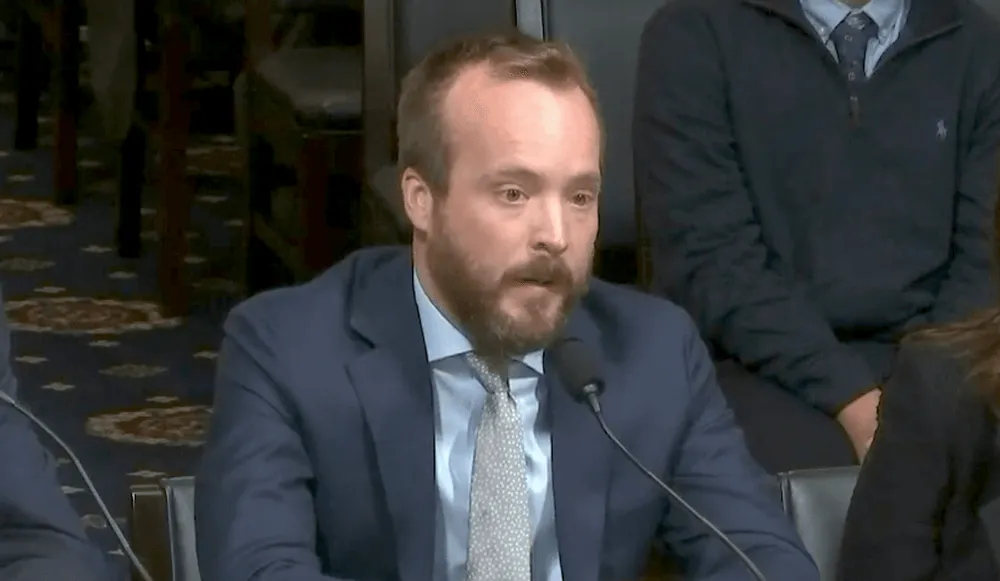White House cyber official Rob Knake to depart
A key architect of the White House’s landmark national cyber strategy will leave office Thursday, according to a source with direct knowledge of the move.
Rob Knake, who has served as deputy national cyber director for budget and policy at the Office of the National Cyber Director (ONCD) since February 2022, is departing just four months after National Cyber Director Chris Inglis stepped down from his role. The two departures leave the ONCD stripped of key talent at a time when the Biden administration is writing the vital implementation plan for the national cyber strategy.
President Joe Biden has yet to nominate a replacement for Inglis, though lawmakers have urged the White House to tap current Acting National Cyber Director Kemba Walden for the role.
It is unclear who will permanently replace Knake. A second source with knowledge of Knake’s plans said he will imminently return to Maine where his family lives and from where he has been commuting on a weekly basis since assuming his role.
Knake is widely viewed as a key Biden White House cybersecurity official with deep knowledge of the nuts and bolts of cybersecurity. He is also seen as a deft negotiator who has proven capable of working out differences between the multitude of agencies which negotiated the national cyber strategy.
“ONCD has a strong team, but Rob’s departure is a real loss,” said James Lewis, a cybersecurity expert who directs the Technology and Public Policy Program at the Center for Strategic and International Studies. “Rob brought deep experience and knowledge to the strategy process and is one of the main reasons the cyber strategy turned out so well.”
Knake served as director for cybersecurity under President Barack Obama from 2011 to 2015 and was a senior counselor at the Department of Homeland Security for a year prior to that. He is also the co-author of a highly regarded book, “The Fifth Domain: Defending Our Country, Our Companies, and Ourselves in the Age of Cyber Threats,” written with Richard A. Clarke, who served as counterterrorism czar under President George W. Bush.
The national cyber strategy Knake oversaw on a day-to-day basis was designed to harmonize a confusing — and growing — set of cybersecurity regulations across a variety of critical infrastructure sectors and government agencies.
“What you’re going to see is implementation actions moving out to every single department and agency that’s been involved in this process,” Knake said of the evolving implementation plan at a March event hosted by the U.S. Chamber of Commerce, as reported by the Federal News Network.
The cyber strategy is notable for moving more responsibility for cybersecurity onto industry. In a fact sheet released in March, President Joe Biden’s administration said it will “rebalance the responsibility to defend cyberspace by shifting the burden for cybersecurity away from individuals, small businesses, and local governments, and onto the organizations that are most capable and best-positioned to reduce risks for all of us.”
Momentum for the strategy gathered in the wake of the May 2021 Colonial Pipeline cyberattack which led to a sudden and crippling gas shortage. It also followed the similarly devastating 2020 SolarWinds hack, which led to a supply chain incident affecting thousands of organizations and even the U.S. government.
In his March speech, Knake said the newly released strategy should be considered just “the 1.0 version,” emphasizing the extensive work ahead.
“We will be tracking each of those activities, making sure that we do them as a federal government, but also to make sure that they’re effective,” Knake said. “And if they’re not effective to make sure that we are adjusting course, and we’re coming up with new efforts and new initiatives to meet those overall strategic goals.”
The evolving strategy is under negotiation in the so-called interagency, the hodgepodge of Cabinet agencies which weigh in on significant policy changes issued by the federal government. Knake’s relationships across agencies is seen as a key aspect of his successful stewardship over the strategy.
“Rob leaving is a real loss for NCD as he has superb interagency relations and is key to navigating complex documents — like the implementation plan — through the approval process,” said Mark Montgomery, senior director of the Center on Cyber and Technology Innovation at the Foundation for Defense of Democracies and the former executive director of the Cyberspace Solarium Commission.
Suzanne Smalley
is a reporter covering digital privacy, surveillance technologies and cybersecurity policy for The Record. She was previously a cybersecurity reporter at CyberScoop. Earlier in her career Suzanne covered the Boston Police Department for the Boston Globe and two presidential campaign cycles for Newsweek. She lives in Washington with her husband and three children.



